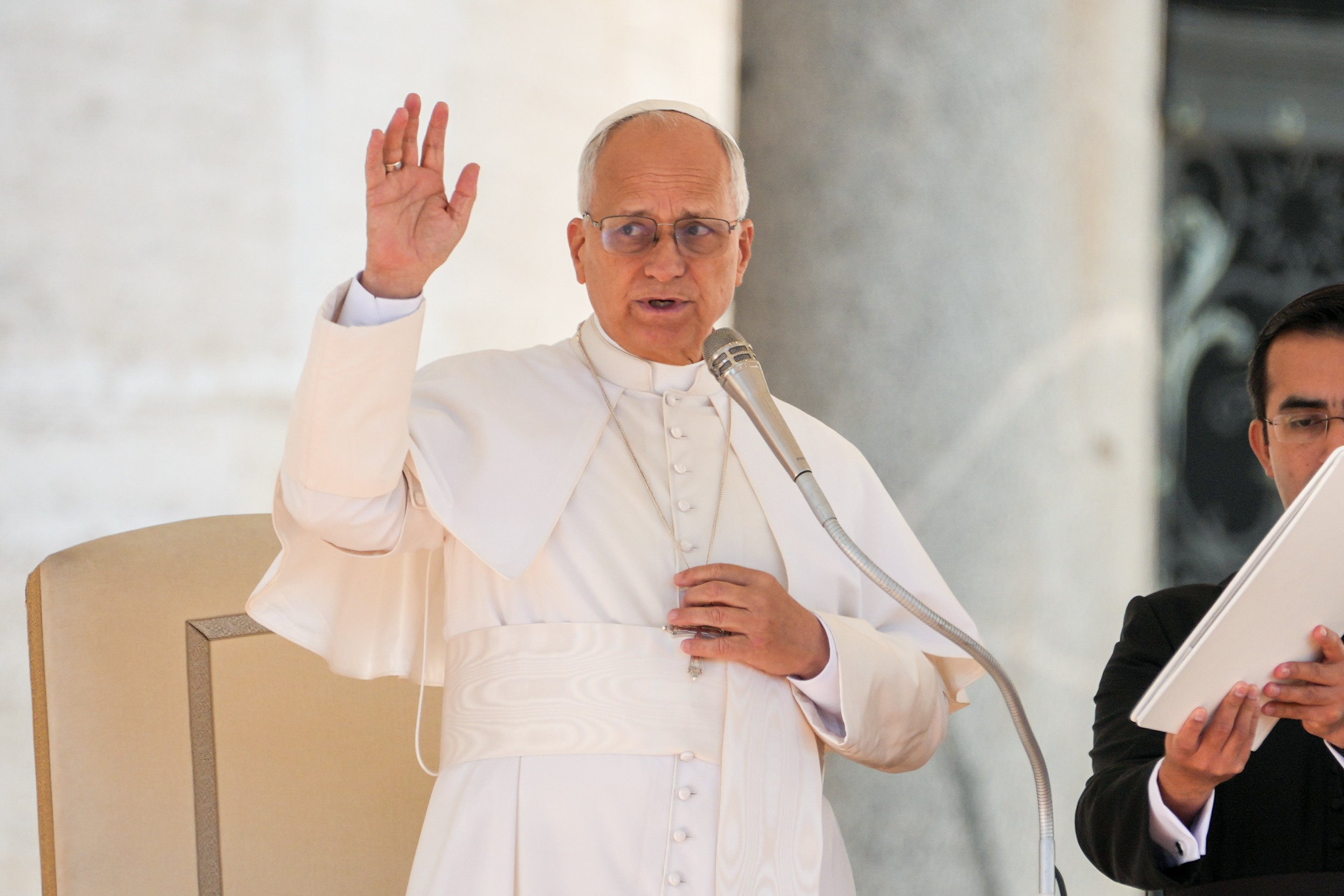April 6, 2018 at 1:53 p.m.
WORD OF FAITH
Where to put all trust
'Suddenly a bright cloud overshadowed them, and from the cloud, a voice said, "This is my Son, my beloved; with Him I am well pleased; listen to Him!"'- Matthew 17:5
The disciple of Paul responsible for Sunday's II Timothy (1:8b-10) passage states one of Christianity's most fundamental truths: God "saved us and called us to a holy life."
Three Sundays ago, we delved into the biblical concept of "holy." Today, we'll do the same for "called."
Our sacred authors presumed all their readers knew they'd been called either by Yahweh or by Jesus, else they wouldn't be listening to their writings. Readers would be interested in learning more about the implications of responding to that call. That's why our Genesis (12:1-4a) passage is so significant: It contains the first call in all of Scripture.
I always remind my students that the first 11 chapters of Genesis are biblical "pre-history," setting the stage for what's going to happen in chapter 12. Our salvation history technically begins with Abram's call and his response to that call. This short narrative not only sets the pattern for all biblical calls, it also applies to our own calls - and the response both Yahweh and Jesus expect.
Note Yahweh's first words: "Go forth...!" Nowhere in Scripture is anyone called to stay in the place he or she is currently inhabiting. All biblical calls demand the called person move - if not geographically, at least psychologically.
Abram's call initially involves a change of residence "from the land of your kinsfolk and from your father's house to a land that I will show you." It also includes a change in mentality.
We presume, before this gather of Judaism encountered Yahweh, his basic security revolved around where he lived and his family relationships. Once he says, "Yes!" to this call, he's putting all his security in Yahweh.
I'll show you
Most important, Yahweh isn't telling him exactly where he's going. It's just "to a land I will show you." From now on, Yahweh's dictating his itinerary.
In the same way, back in Matthew 4 when Jesus' first four disciples said, "Yes!" to His call, abandoned their fishing equipment, left their families and began to follow Him, they had no idea where He would eventually lead them. I presume they initially thought they were just agreeing to accompany a former Caparnaum carpenter who was going town to town, making people aware of God's presence in their lives. They had no idea this itinerant preacher would eventually be transfigured before their eyes.
After his resurrection, when Sunday's Gospel (Matthew 17:1-9) took shape, they would begin to see Him not only as God's special Son, but as God actually among them, the fulfillment of everything their Jewish faith promised. It wouldn't have crossed any of their minds on the day they first encountered Jesus along the seashore that they would one day be giving up everything to carry on His ministry.
What would motivate anyone to make such a commitment? Our II Timothy author gives us a hint: by doing so, we become part of God's design for the world.
A part of it
Instead of just being observers of God's actions, we actually participate in those actions. Instead of being in the audience, we're up on the stage. We help God "destroy death and bring immortality to light." It's worth the insecurity.
Coming from a Catholic tradition in which only priests and religious women were regarded as being called by God, it takes a giant leap of faith for many of us to notice the calls God and the risen Jesus give all of us every day of our lives.
With the number of priests and nuns drastically decreasing, if the rest of us don't agree to become part of God's design for the world, this world will never become the world God intends it to become.[[In-content Ad]]
SOCIAL MEDIA
OSV NEWS
- Vatican says Swiss Guards investigating alleged antisemitic gesture
- Bishop: Survival of Christian communities in Nigeria depends on security, justice
- Pope asks for extra care when using AI in medicine
- Pope holds long meeting with Belgian abuse survivors
- Delegation of top prelates, lay activists gives Brazil church strong presence at COP30
- Pope offers prayers for the Philippines and for peacemakers
- Dig deep and work patiently to keep church on solid foundation, pope says
- Portland archbishop on ICE: Human dignity comes from God, not government
- Christian hope shows the earth can resemble heaven, pope says
- Washington Roundup: Election shifts; Venezuela vote; transgender passports, and more







Comments:
You must login to comment.